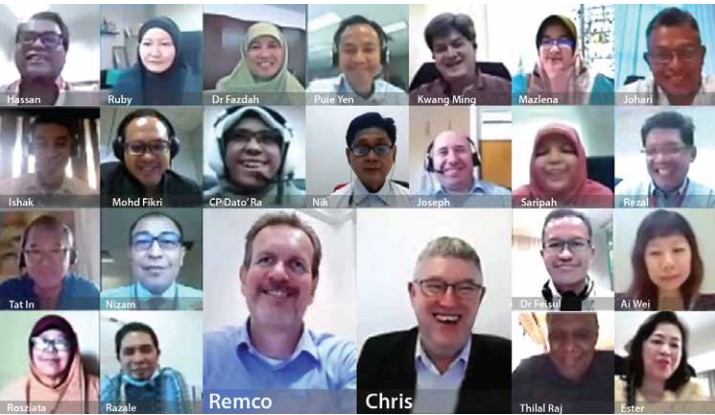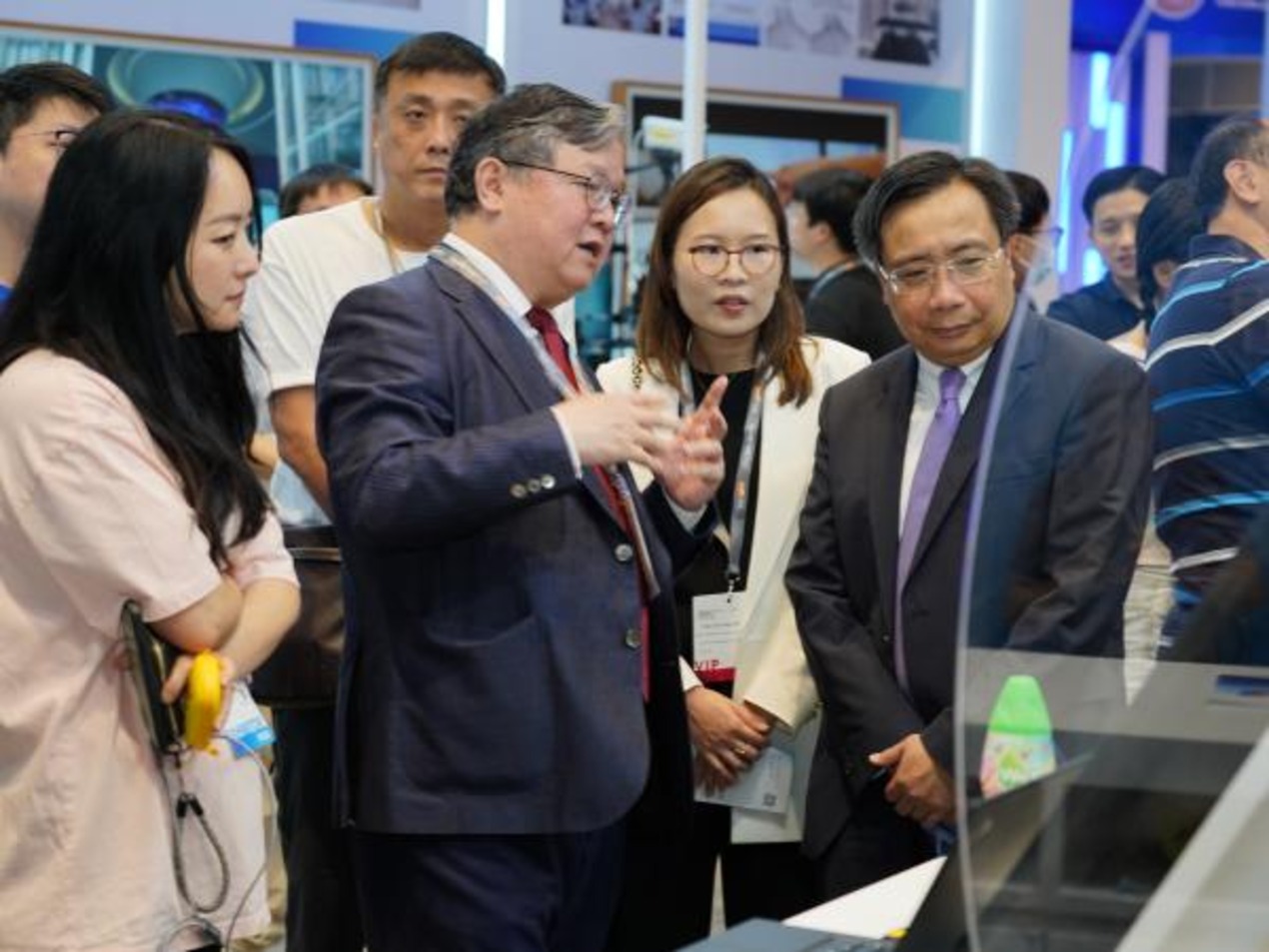
The year 2020 has left us all changed forever. The pandemic has impacted every aspect of our society and personal lives.
As the people struggle to cope, governments and public sector agencies across the globe are working relentlessly to remain sustainable and functional.
The public sector has not had any respite during the last few months. In fact, efforts to deal with the present and to be better prepared for the future, the focus on digital transformation and resilience have redoubled.
OpenGov Asia hosted the second in a series OpenGov Live! Virtual breakfast Insights to discuss what “Powering Smarter and Resilient Government with Advanced Analytics and AI” entails.
The virtual session saw a full house, with public sector executives from various Malaysian agencies in attendance.
Technology is a powerful tool that can lead us towards a better future

Mohit Sagar, Group Managing Director and Editor-in-Chief, OpenGov Asia, set the tone for the discussion by highlighting the pain and pressure on governments over the last four 4 months.
Governments are dedicating all their energy and resources to provide whatever is necessary to maximise the wellbeing of its citizens.
Even as governments have been working hard to protect residents, they have been collecting huge volumes of data from the general public.
This data has been for logistical purposes, for tracking and tracing, for infection control and overall citizen care.
In such times, Mohit said, the role of leaders becomes very important. Leaders not only manage the response to the crisis but also the recovery and path to a better future.
Technology is a powerful tool to communicate and connect with people and has the potential to lead to a better life ahead.
Mohit concluded his opening on an optimistic note pointing out that in a crisis danger and opportunity coexist.
With the right mindset and right people around, one can capitalise on the opportunity that present themselves.
Data Analytics can help government agencies plan better during stressful times

After the opening, the stage was taken by Remco den Heijer, Vice President – ASEAN, SAS.
Remco briefly introduced the audience to SAS and its mission of improving lives through better decisions.
He then shares his observations about the phased approach being followed by governments in tackling the pandemic and how SAS data analytics tools support that.
Remco presented the three stages highlighted by him:
- Respond
- Recover
- Reimagine
To expound on the Respond Stage, he talked about collaboration with governments in India and the United States to predict their medical infrastructure requirements using SAS’s data analytics.
Similarly, during the Recovery Stage, SAS worked closely with government agencies to prepare them as they were getting ready to reopen their economies.
Data analytics helped government determine their revenue streams, expenses and distribution patterns of stimulus packages.
Remco closed by saying that SAS technology can help governments Reimagine the future – to be better prepared for the next emergency well in advance, avoiding loss to lives and resources.
Data is the biggest commodity that governments have today

The next presenter was Joseph Musolino, Global Sales and Strategy Consultant for Fraud & Security Intelligence, SAS.
Joseph began by emphasizing the importance of data analytics as a tool that can help get valuable insights to understand the environment and the need of the hour.
He further emphasized the relevance of data analytics in the light of the pandemic tying it to the three stages of Respond, Recover and Reimagine.
With governments investing billions of dollars in stimulus packages to support its citizens, it becomes imperative to make sure it reaches people who really need it.
Advance data analytics is a useful tool that can help governments identify the needs of its people and fulfil them by accurately allocating the resources.
Analytics can also help governments manage to their revenue streams and distribute aid to people as they enter the reimagining stage.
He concluded by advising delegates learn a lesson from this pandemic and be well prepared for the next critical event that might hit us.
Analytics can help government get useful insights by measuring the impact of their response to the pandemic

Chris Buxton, Chief Digital Officer, Stats New Zealand shared his insights on the topic.
He began by talking about the three-horizon model by Mckinsey and contextualizing it to New Zealand’s response to the pandemic.
Horizon One is concerned with seeing the way the pandemic has impacted the nation. In this horizon, data and analytics tools help the government to measure the virus’ impact and suitable plan its response.
Horizon Two is more focused on measuring the response of the initiatives by government.
The data related to this horizon helps government identify the areas that needed help more than the others and then act accordingly.
Horizon Three is focused on getting the country back to the speed to which it was before.
Monitoring long-term data indicators like employment rates, GDP, etc. will allow governments to decide their course of action in the years to come.
With this, the session moved into an interaction with participants as they discussed various polling questions around the topic.
On the question of what was most impacted in their respective organisations due to the COVID – 19 they audience were fairly evenly split.
They were divided between Increased demand for services with rising expectations from the citizens (32%), Workforce planning and Need to test the resilience of working remotely both in short and long term (32%).
The Director of Public Services, GLC’S and Telco Sales for SAS Malaysia shared that in the current stage of the pandemic, organisations are already in the reset mode. At this point all areas mentioned in the poll question are equally impacted and need attention. Had this question been asked at the beginning of the pandemic, the answer would have been different.
On the question of which area does your organisation needs to develop most to respond more efficiently to the next COVID – 19, the delegates seemed divided between Integrated operations models to keep the government running efficiently and sustainably (40%) and Use of data and analytics to improve situational awareness for real time decision making (37%).
A senior technical delegate from MIMOS explained that data sharing among government agencies and organisations was a big challenge. For one, they are not integrated and secondly, there are several restrictions on data sharing. This is one area he felt that needed more attention.
On the final question on the biggest risk when spending billions on stimulus packages during the COVID – 19 pandemic, almost half the delegates voted that the money has not been disseminated to the right citizens or businesses that need it the most.
A senior delegate from a social security organisation reflected that one of the major lacunae in distribution of the stimulus packages was that people who were not affiliated to an organisation or were contributing to a social security fund were deprived of the benefits of government’s stimulus package.

The session concluded with remarks by Nik Ariff Nik Omar, Director of Public services, GLC’S and Telco Sales for SAS Malaysia.
It was very interesting to know that about 25% of the attendees were already using the analytical and AI tools that were discussed during the session.
Nik also encouraged the rest to make data analytics an integral part of their workings to enhance their delivery to citizens.
He thanked all the delegates for taking their time out and wished them the best as they are on their journeys to return to the normal.

















